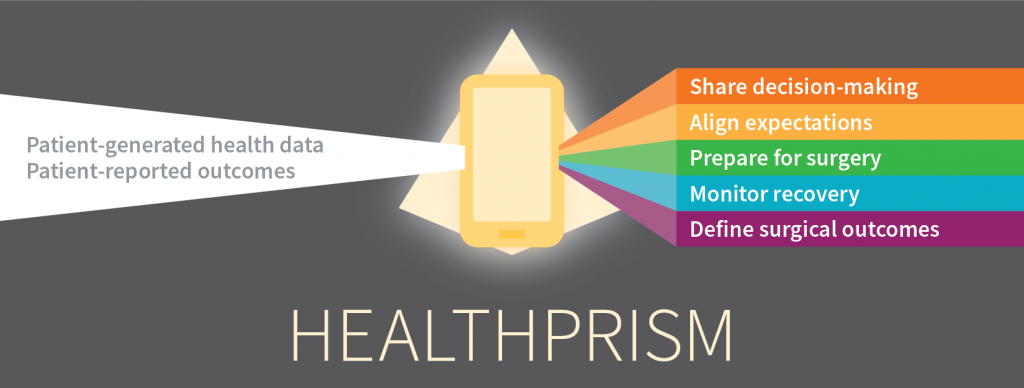The Problem
While delivery of surgical care has improved globally, patients are spending a greater amount of their recovery in an unmonitored setting. Clinicians and patients tend to rely on limited information to assess recovery after surgery. This leads to a fragmented, health care system that typically reacts to–instead of prevents–postoperative complications. A patient’s quality of life also suffers.
Characterizing a patient’s experience in ways that matter most to them is critical in understanding their journey through surgical recovery. Offering tools that make their own personal health data available and understandable can empower them to fully engage with treatment decisions and manage recovery.
Our Solution
In collaboration with the Harvard T.H. Chan School of Public Health Onnela Lab, Ariadne Labs has launched HealthPrism, a pilot program that uses digital phenotyping, or moment-by-moment data collection from a person’s digital devices, particularly smartphones, to shed light on their physical and mental health. HealthPrism captures data passively–via a smartphone’s GPS and other sensors, for example–and actively from brief surveys, audio recordings, and on-screen cognitive tests. This combination provides a unique measurement of surgical recovery defined fundamentally by patients.
This technology also has the ability to capture nearly one billion interactions per patient in just one month as well as patient-reported quality-of-life outcomes. In doing so, this tool has the potential to:
- improve outcomes after surgery through early detection of post-surgical complications
- offer more informed, shared decision-making around surgical care
- develop a methodology to collect patient-centered outcomes on a large scale
HealthPrism is a robust platform for gathering patient-generated health data that can truly measure treatment outcomes that matter to each and every patient.
We are currently looking for a partner, sponsor, or collaborator who can help implement HealthPrism in clinical settings; develop ways to communicate the data to patients, clinicians, and other interested parties; and assist with data analysis. For more information on HealthPrism or these opportunities, please contact Kurt Lowery or Nikhil Panda on our Safe Surgery Program team.




